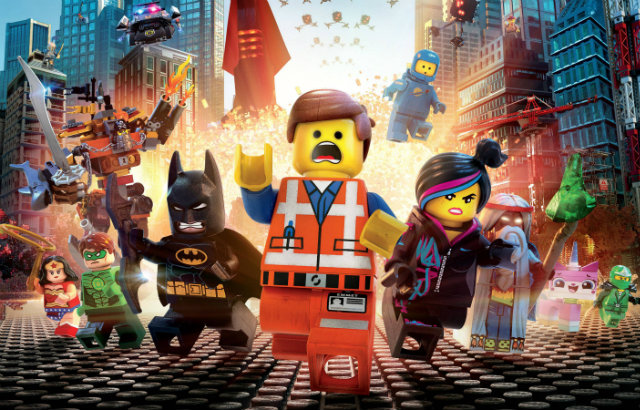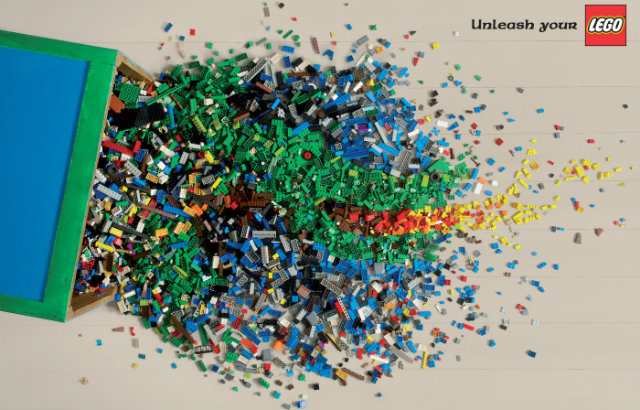
What can customer experience leaders learn from the remarkable success of The LEGO Group? What is the connection between LEGO plastic bricks and digital marketing? None, at first glance. If you look deeply, though, you will see that the maker of children's toys that has a lot to teach.
There is a reason if the company has quadrupled its sales in the decade when virtual entertainment has replaced physical. That reason is the ability to build a unique brand, both anchored to tradition and open to innovation. The essence of digital transformation.
Our children do not play like we used to. They do not like what we like, yet there are LEGO sets in almost every house. And the LEGO playing experience has not changed at all over the years. From wooden playthings to plastic bricks, from video games to movies, the little toys are everywhere.
Founded in Denmark in 1932, The LEGO Group history spans nearly one hundred years of building creativity. While other classic brands have struggled - and still struggle - to survive the avalanche of digital screen and video games, LEGO has managed to overcome the challenge. Ultimately becoming one the world's great brands, the most valuable toy company (ahead of the giant Mattel), and one of the most loved icons of all times.
What is the secret of this enduring success? We can sum it up by quoting two catchphrases from past LEGO advertising campaigns:
“I Can Build What I Want” - Using LEGOs you can build whatever your creativity brings out. Lego marketers have built the brand the same way, decade after decade. Despite its century-long tradition, LEGO is all but a traditional company. Ready to innovate with eyes wide open, the company is devoted to creativity, without walls and prejudices.
“Everything is Awesome” - LEGO marketers are great builders of content, none can deny this fact. No matter what tools they are using to engage customers, what is really important is the quality of the output. LEGO video games constantly amaze users and critics, and the same happens with the movies. Everything is awesome when we are living our dreams.
The toy industry is well known to be the battlefield of a fierce competition. Marketing strategies need to accomplish two different goals: on the one hand they must attract, engage and delight children; on the other hand they must persuade parents. Given these premises, great content marketing is the only way to build a strong brand.
Easier said than done. Since the expiration of the last standing LEGO patent in 1989, we have witnessed the flowering of the blocks market. A growing number of companies has entered the competition, producing plastic bricks that are very similar to LEGOs.
Just take a look at the shelves in toy stores, and you will see dozens of alternatives. Through the years some have failed, some have reached a temporary success, very few have built a distinctive identity. None has really threatened the LEGO supremacy.
First come, first win? Of course, the fact that they have been the first to produce building blocks has given an aura of familiarity to the company. But this is not enough to explain the long-lasting (and ever growing) success of the Legos.

Let’s get down to the nitty-gritty, highlighting the five timeless customer experience lessons we can learn from the tiny LEGO blocks.
KNOW YOUR CUSTOMERS
For some industries, the buyer persona includes both the customer and the user. This logic does not apply to the toy industry, where the users are hardly ever the ones who make the purchase. When you build your strategy, it is easy to lose sight and underestimate the customer, focusing on the user (or vice versa). LEGO knows the difference between the two entities and constantly works to appeal both with tailor-cut content activities.
NEVER STOP BUILDING
Never stop building is yet another great motto taken from the company’s history. In a sense, it enshrines the entire LEGO philosophy: creativity is not a bird box. Creativity is a never-ending process that puts together what we are (as a brand) and what the world around us has become (mostly due to technology). Success, in these terms, is about finding new ways to improve and adapt to customers.
BORN TO BUILD CONTENT
A memorable customer experience always lies on great content, even more so after the digital disruption. LEGO is probably one of the best companies in the world at engaging and retaining customers through the use of valuable content. They do not just sell; they tell stories. LEGO’s storytelling is not about the product, it is about the customer: a story you can relate to is the foundations of great content marketing.
EMBRACE THE EVOLUTION
What if LEGO continued to produce only the original sets? One critical quality of the company is the ability to embrace the evolution of technology and tastes. LEGO methodology is set on constant change, showing that - in the digital era - you cannot live in just one channel alone. New sets (i.e. DC Comics, Simpsons, Dr. Who), magazines & comic books, movies, installation art, video games: they do whatever it takes to engage customers and oversee every channel.
CREATE BRAND BELONGING
Customers, they do not simply buy a product. They buy that specific product because they want to be part of a story. Identity and content create a sense of belonging, deployed across all channels and tools: community, social media, mobile apps, events dedicated to ‘builders’ of all ages. Have you ever given a child a product similar to LEGO but from a different brand? Then, you know what we are talking about.
Here is a huge lesson all digital entrepreneurs should learn from The LEGO Company: even when you have the best product on the market, the key to success is to create an amazing customer experience. The experience is the main brand differentiator in markets where clients can choose from hundreds of similar products.
Even when your brand is universally acclaimed, you can lose all your customers in the blink of an eye if you cannot evolve with customers. Loyalty is never carved in stone, and The LEGO Company knows it well. Evolution is in the brand’s DNA, and marketers are devoted to innovation in every single aspect of their job.
YOU MIGHT ALSO LIKE: 5 Digital Marketing Lessons From Game Of Thrones
To help you provide a strategic advantage to your organization, Neosperience has crafted the first DCX 7-Steps Checklist, with requirements and insights for a successful digital transformation. Download the free guide here:



 Your magnifing glass to deeply understand your users and increase the value of each relatonship.
Your magnifing glass to deeply understand your users and increase the value of each relatonship. Listen to the voice of your customers deeply to understand what they truly want.
Listen to the voice of your customers deeply to understand what they truly want. The Lead Generation Platform to get leads from anonymous traffic on your website.
The Lead Generation Platform to get leads from anonymous traffic on your website.  Understand the behavior of people in physical spaces and monitor safety requirements.
Understand the behavior of people in physical spaces and monitor safety requirements. The Digital Commerce Platform designed to follow the most modern technological standards..
The Digital Commerce Platform designed to follow the most modern technological standards.. The XReality platform to tell brand and product stories by connecting physical and digital worlds.
The XReality platform to tell brand and product stories by connecting physical and digital worlds. Points, rewards, levels, badges, missions: a world of nudges to nurture your customer community.
Points, rewards, levels, badges, missions: a world of nudges to nurture your customer community. Discover all the other solutions!
Discover all the other solutions!









